
The Must Have Guide
Expert GRE Verbal Preparation Tips for Achieving a 160+ Score
A 160+ score on the GRE Verbal will put you in the 90th percentile.
That’s much easier said than done.
You might have a lot of questions such as:
- How do you make the steep climb to a 160? How do I study/prepare for GRE Verbal?
- What common mistakes and small errors can you avoid in order to obtain a good GRE Verbal score?
- How do I practice GRE verbal? Is there a GRE Vocabulary list?
- What is a good score on GRE verbal and how can I reach it?
- How can you improve GRE Verbal scores?
That is exactly what we’re going to discuss today.
Table of Contents
-
#1 Let’s recap the GRE Pattern
-
#2 GRE Verbal Reasoning Question Types
-
#3 GRE Verbal Tips ,Tricks & Strategies to Remember
-
#4 Study/Prepare for GRE Verbal : Prioritizing Question Types
-
#5 Reading Comprehension
-
#6 Time Management : Overview
-
#7 Discrete Questions : Tips
-
#8 GRE Reading Comprehension : Tips
-
#9 Mistakes to Avoid
-
#10 Get to 160+
Chapter 1
Let's recap the GRE Exam Pattern
In this blog, we’re going to be looking at how you can score 160 plus in the GRE verbal section. I know there are a lot of you out there who may be struggling with GRE verbal at a lower level and for you we highly recommend focusing and working on your reading skills and your comprehension skills.
So that would be what anybody in the 150 range should be focusing on. A lot of you who have already cracked and gotten past that 150 range in GRE Verbal, and are just about touching that 160 range may have realized now that this may be the steepest part of the climb.
No matter what you do, it will be difficult to go even one score higher here and that’s because this is where it really gets tough.
This is where it’s not just about your skills but also about being cautious and strategic in your approach. It is about knowing the common mistakes and small errors that you should avoid in order to get that 160+ score in GRE Verbal.
That’s what we’re going to quickly look at. But before that, here’s a recap of the GRE exam pattern (or ‘GRE verbal syllabus’) for those of you who are not 100 percent clear.
The verbal part of the GRE score comes from your performance in 2 Verbal Sections within the GRE.
The computer-delivered GRE® General Test takes about 3 hours and 45 minutes. It consists of three separately timed sections.
[bctt tweet=”#GREStudyTip :Focus and Work on reading comprehension skills if you are struggling to crack 150 in verbal” username=”galvanizeprep”]
For GRE Verbal Reasoning —
There are two 30-minute sections, each containing 20 questions.
Similarly, for Quantitative Reasoning —
There are two 35-minute sections, each containing 20 questions.
[bctt tweet=”GRE Exam Pattern : Verbal reasoning : Two 30 mins sections with 20 Qs each Quantitative Reasoning : Two 35 mins section with 20 Qs each GRE analytical : two essays ” username=”galvanizeprep”]
That’s a total of a minimum of 40 GRE Verbal questions that you have to tackle and crack. The scores from these questions comprise half your overall score of 340, the half being 170.
The GRE Verbal and Quantitative Reasoning scores are reported on a 130–170 score scale, in 1-point increments.
Scores anywhere within the range of 160 to 170 signifies that your verbal skills are quite impressive because this score range falls within a very high GRE Verbal Percentile Range.
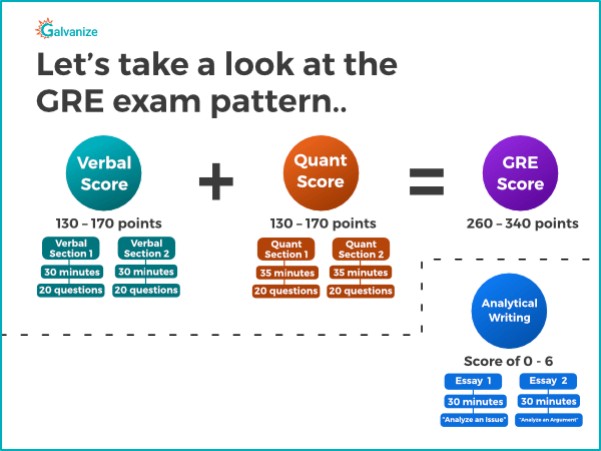
The reason a 160 plus score in GRE Verbal is a worthy target to aim for is because of what the score means. It means that you have performed better than 90 to 95% of the test-takers!
The second half of the test will be the Quant Section, where you will need to aim high once again, in order to obtain an impressive overall GRE Score.
In addition to these 2 sections, you will also have the GRE analytical writing section comprising two essays. The AWA section is scored from 0 to 6. You may get a research section or an unidentified section in addition to this.
Let us now look at how to prepare for the GRE Verbal Section to get a 160+ score. Read on!
[bctt tweet=”Scoring 160+/170 in verbal will make you better than 90-95 % of people taking GRE Source : https://galvanizetestprep.com/blogs/gre-verbal/” username=”galvanizeprep”]
Chapter 2
GRE Verbal Reasoning Question Types
The GRE Verbal section is considered more difficult compared to the Quant section by most of test-takers. What makes this section so tough? Is it because most GRE test-takers are familiar with math on a daily basis due to the fact that most of them are from STEM backgrounds? Food for thought.
Now, let’s dive into the GRE Verbal Reasoning section and get familiar with the question types within Verbal Reasoning. If you’re well into your preparation you should know these by now, but a refresher never hurt anyone! 😛
GRE Verbal Syllabus
GRE Verbal questions fall under three categories:
- Reading Comprehension
- Sentence Equivalence
- Text Completion
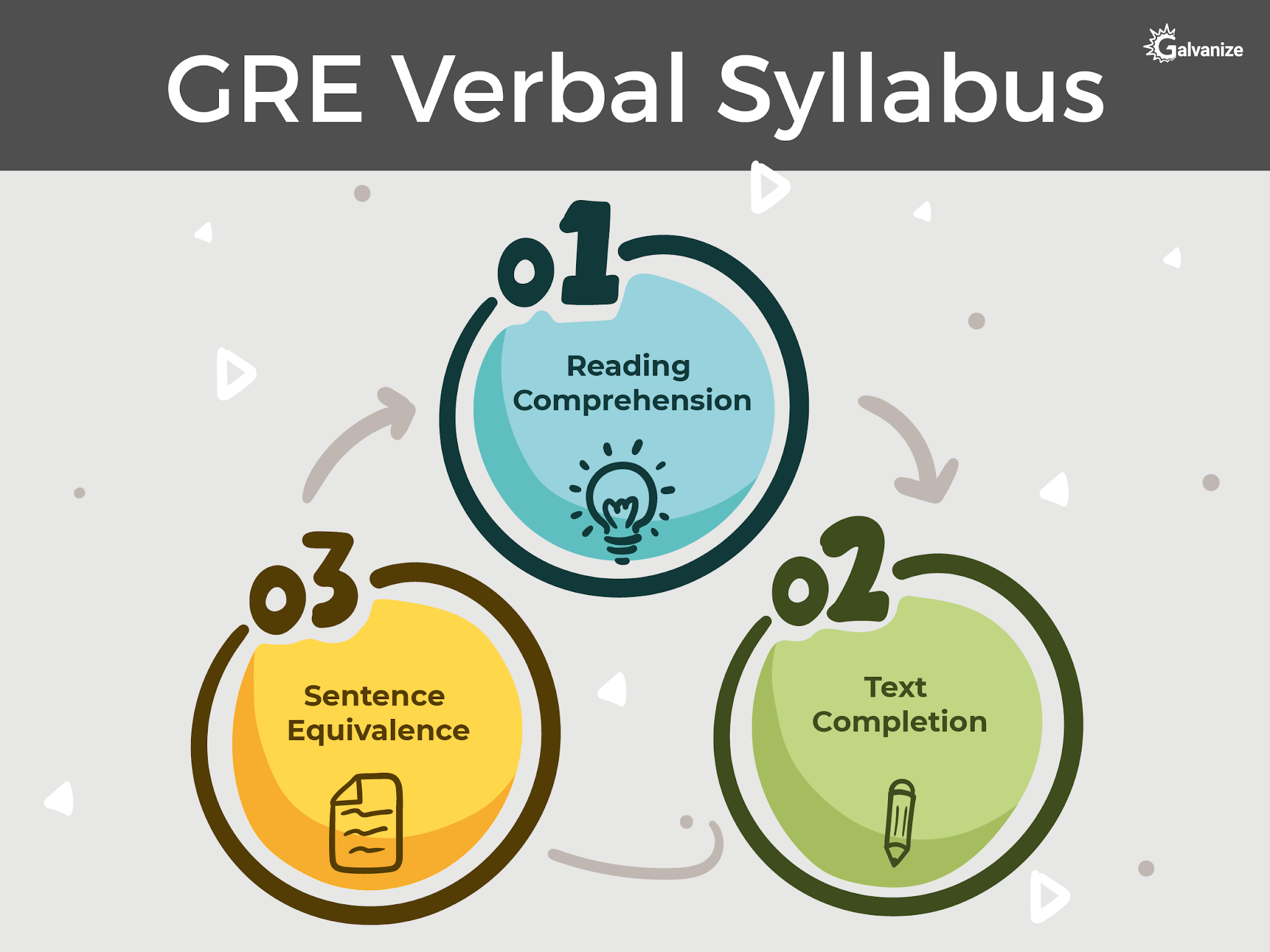 Of these, GRE Reading Comprehension forms half of all the questions you encounter in verbal reasoning altogether. So, anybody who’s even aiming for a 155+ score cannot afford to ignore reading comprehension preparation.
Of these, GRE Reading Comprehension forms half of all the questions you encounter in verbal reasoning altogether. So, anybody who’s even aiming for a 155+ score cannot afford to ignore reading comprehension preparation.
The GRE Verbal Reasoning topics assesses a test takers ability to:
- Perform an analysis and evaluation of the written material that is provided in the form of sentences, paragraphs, and passages
- Generate information gleaned from this material
- Perform an analysis of the relationships among the components of sentences and recognize relationships among words and concepts.
This might be a tough pill to swallow, but the truth is that the only way to get better at RC is to READ EVERY DAY. Read from a variety of sources and read with a sense of curiousity. Do not worry about speed and do not worry if a lot of the words are unfamiliar to you. Take your time, look up words you come across, and read for at least an hour every day. Your reading skills will improve vastly, as will your sense of grammatical intuition and ability to read seamlessly. As for the ‘variety of sources’ mentioned above, you could read books, magazines, newspapers, and online pieces. As long as you read, you are on the right track.
You cannot crack a 150+ score in GRE Verbal without some familiarity and comfort with reading comprehension – it is just not possible. And this is the reason why you must take up take up the GRE verbal practice test regularly.
How difficult is GRE Verbal Reasoning?
The GRE verbal section is considered as the tough part in the entire GRE exam by many test-takers. As stated earlier, the verbal section tests your ability to analyze and evaluate the written material that is provided in the form of sentences, paragraphs, and passages. The reason this section is considered ‘tough’ is due to the fact that this section is heavy in vocabulary. The unfamiliarity that arises when attempting this section and coming across tons of new words can be daunting.
The reality is that this Section is crackable with the right kind of preparation. With GRE vocabulary as a tool, you can attack the verbal section with confidence and emerge victorious.
Chapter 3
GRE Verbal Tips, Tricks & Strategies to Remember
Now, let us look at some general GRE Verbal tips to remember.
Time management is all-important for the GRE –
Please do not get so caught up with a question that you lose track of time. Go for the easy, quickly solvable question types first which are usually the discrete questions– i.e. the ones that have only one sentence or two sentences with a blank. Finish these question types off first because you want to push your GRE verbal score as high as possible in the least amount of time before you go into the depth of trying to solve reading comprehension or those really tricky Text Completion (with 3 blanks) types. So, be proactive and practice time management. This is possible with a lot of GRE English practice questions. You can get them on our GRE App!.
Next you want to read everything really carefully – this is all important for the GRE. You don’t want to miss a single word and we’ll cover why shortly. When we say “everything” we’re talking about every question stem, every single answer choice, the passages, and even the instructions in the GRE verbal section.
There are a lot of students who don’t realize that GRE sentence equivalence questions require two correct answer options, no more no less. If you’re not familiar with this or if you miss the instructions, you may end up choosing only one answer.
That is a really silly way to lose a really important point in the GRE Verbal Section so please read carefully, follow the instructions and know which question types you’re answering to. With Sentence Equivalence and RC’s as well, you may encounter some questions where more than one option could be correct. So, what you have to do is assess each option individually and select all that apply.
You need to check your instructions before you do this so you’re sure that you’re tackling the right type, especially for GRE Reading Comprehension. For RC questions with multiple correct answers ,there are usually three options, not five. Typical RC’s with only one correct answer have 5 options, whereas these have 3 options. As far as the discrete questions are concerned, the SE types have six options.
[bctt tweet=”Typical RC’s with only one correct answer have 5 options whereas these have 3 options and as far as the discrete questions are concerned the SE types have six options.” username=”galvanizeprep”]
That’s how you can differentiate them from Text Completion types which only have five options. In the GRE Verbal Section, TC stands for text completion, SE stands for sentence equivalence.
[bctt tweet=”#GREtip You need not skip any questions in GRE as there are no negative markings” username=”galvanizeprep”]
GRE Verbal Practice
For anybody in any part of their preparation, it’s all important to review your mistakes after practicing a number of questions. This holds true regardless of the level of GRE Verbal practice that you’ve undertaken so far.
When you were in school, your teacher made you take a test and then hopefully provided some feedback on all the questions on the test? – they would mark everything right or wrong and you would have to really think about what you did right or wrong.
Reviewing mistakes is when you’re actually registering what it is that you have done wrong and how you can fix it. If you do not undertake this vital step, you are bound to repeat the same mistakes over and over.
It is human nature for us to do that… so please take the time to review your performance. Even if you have got a question right, it is important for you to realise WHY you have got something right.
A practice test isn’t a practice test unless it is followed by a thorough review, especially when it comes to GRE verbal practice.
If a test was ten minutes, review for 20 minutes. If you have to review all the answers you got wrong, look at all of the options that you fell for, note your mistakes down – what kind of mistake was it? was it careless? was it vocabulary?
The next step is to take up a practice test, solve the GRE Verbal questions and then track the mistakes that you made. We always recommend that you maintain a list of sorts.
Did you not know the meaning of a word? Did you miss something in the question stem? Did you make a faulty assumption?
These questions are what you should be asking yourself when you’re reviewing your mistakes after taking up a GRE verbal practice test.
It’s fine if your error log is on a notepad, or a Word document. It just needs to be someplace where you don’t lose it. Keep track of every mistake that you have made and you have to revisit this mistake list before taking up another GRE verbal practice test.

Note those mistakes, keep them in mind and be conscious of those mistakes during the test.
You can’t get all flustered looking at the questions and forget all about your old mistakes. You have to say “hey I fell for this trick before, I can’t fall for it now” and that needs to be a part of how you’re attempting each question.
Please keep track of the mistakes you’ve made and revisit that list.
That list may keep growing but if it keeps growing it’s also good for you because mistakes are a wonderful place to learn from. You remember them. Use them to help remember what you shouldn’t do.
This is a good recommendation for how you should go about your GRE Verbal preparation.
You want to follow an organized study plan that tells you to need to do at a particular time. You need to complete before an xyz date.
Anybody who’s following an organized study plan obviously ensures that they take all of their mock tests on time and review the same carefully.
For those of you who are going to join Galvanize or already have, you know that you receive a personalized GRE study plan based on how you fared on our diagnostic test.
We’re going to tell you what your skill level is and how you should go about preparing for your exam. It’s going to be very specific. You’re going to have tasks for every day and we will also assign when you should take your mock tests to help you get through this part of the process.
Strategies for GRE Text Completion:
The GRE Verbal section consists of the tricky Text Completion (TC) questions that most students struggle with. In order to ace the TC questions, one must have adequate command over vocabulary (GRE vocabulary) and good reading comprehension capacity. Text completion might sound a simple enough task initially but as students go through the sections they realize the might of it. Students will be facing 6 text completion questions each under both the subsections of the GRE Verbal. Here are some simple tips to tackle the TCs.
- Gist – GRE students must first try to gather the gist of the text. What is the text trying to convey (input/possible meaning of the missing words)? What is the contextual meaning behind the passage?. Once you get the tone sorted, you can go ahead with the next step. This process will ensure you have enhanced clarity about the passage.
- Signal Words – Words such as but, however, nevertheless, indeed, etc, are crucial words that depict a turn in the meaning of the passage emphasizing a particular point. Following such phrases will give vital clues as to the meaning of the text and the possible meaning of the blanks as well.
- Fixing the Jigsaw – The GRE TC questions are a bit like trying to solve a puzzle. Trying to fix the jigsaw puzzle in a single go will seem daunting and one is most likely to make a mistake. It is better to solve them in bits and pieces and then input them together. Similarly, students can break the given question into parts to understand them better. By doing this one can better grasp the probable meaning of the missing text.
- Vocabulary – You will be given a choice of words to fill in the blanks. Hence knowledge of GRE words and their meanings is a must. This will enable students to deduce the meaning of the passage more easily. Make sure in the end your passage is grammatically correct and cogent.
Planning – Some questions will have only one blank of a missing word while some will have 3 blanks. All the TC questions do carry the same mark irrespective of the number of blanks they have. Hence as a test taker of a timed examination students can optimize their time and sort the one blank passages quickly. Moreover, a student need not fill in the blanks in their order, if you are able to definitively deduce the meaning of the second blank first, then you can very fill that and proceed with the first blank.
Strategies for GRE Sentence Equivalence
The sentence equivalence (SE) questions are 4 in number under each of the 2 subsections of the GRE Verbal. So students will be answering a total of 8 SE questions under the GRE verbal part. Here test-takers will be presented with a single
question having one missing word/blank. You are provided with 6 choices. Students have to select 2 of the 6 choices that will result in the sentence having the same meaning. Sound like a straightforward task right, but students do struggle dealing with it. Let’s go through some simple strategies to get through the SE questions.
Sentence Comprehension: The sentence might be missing a word, but all students must read the sentence twice or more to grasp the tone/context and partial meaning the sentence conveys. Since the question is only one single sentence, students generally don’t dwell on it and rather move to the choice of 6 words. Just glancing at the sentence quickly and jumping to conclusions with the given choices is a dangerous approach.
Blank Filling: Students may try filling the blanks in the sentence with their own words. This will greatly aid the students in narrowing down the correct choices from the given 6. While going through the process of sentence comprehension, your mind will suggest intuitive choices naturally, see if the sentence makes sense with them. Then comparing the same with the given answer options will help you reach your goal quicker.
Signal Words: A time-tested strategy in many verbal sections of competitive examinations is the ‘Signal’ words. Words/Phrases such as however/ although/ but might imply a contrast in the sentence. While words such as furthermore/ additionally/ indeed lend support to the accompanying arguments. Analyzing the meaning of such signal words will empower the student to make out the context of the sentence more firmly.
Synonymous Choices: Students must be wary of synonymous word choices amongst the answer options. Just because 2 words have the same meaning might not make the sentence coherent or even grammatically correct.
Answer Options: Test takers must try all the answer options, eliminate the outliers (i.e. words that do not match with any of the other choices in any way), check for a semantic flow in the sentence with selected choices. Both the choices must produce meaningful sentences that are grammatically correct.
Strategies for GRE Reading Comprehension
The GRE Verbal is made of 2 subsections that have around 10 questions each on reading comprehension (RC). Students will be required to answer questions regarding corresponding passages they are presented with. Approximately 10 passages are given in the GRE Verbal test. Most passages are one paragraph in length while some/few might be lengthier. They can be on business/arts/sciences/humanities and even non-academic. Basically, the reading comprehension sections test the student’s potential to deal with graduate reading level vigor and demands of university-level courses. The RC questions form a major chunk of the GRE Verbal part. Below we have listed few tips to navigate the RC questions.
Question Read Through: Before reading a passage students would do better if they are able to give a quick glance at the accompanying questions for that passage. This helps students channelize their minds into looking for answers while they read the passage.
Summarize: After giving a thorough reading of the passage make sure you have a mental mind map of the passage, i.e. its gist/essence. This will help you while fishing for answers. Students can also make rough notes or bullet points of certain themes in the passages, especially in length passages. All this will lessen the time taken to find the correct answers.
All Choices: When attempting questions with multiple choice answers, test takers must remember to take into account all the choices. Differences between some choices will be minimal, but the student must consider all the given choices before arriving at a conclusion.
Stick to the Passage: Answer choices that contain actual information given in the passage should be considered. Some choice options might provide similar information or state general facts/opinions on the same topic as discussed in the passage. Students must carefully discern the choices with actual passage information from choices with general opinion or outside fact.
Final Review: Typically each passage may contain 2 to 4 questions. Hence after finishing a passage and all the questions accompanying that particular passage, students must review their responses. At the end of the last question concerning a passage, the test taker is bound to have a better grasp over the passage than he did while starting out with the first question. Hence students can review the questions and see if they wish to change their choice of answers. You might be surprised at how many students find they had selected incorrect choices previously.
Chapter 4
Study/Prepare for GRE Verbal : Prioritizing Question Types
Alright let’s get to the big question for a lot of students – ‘how do I manage time while answering the GRE verbal section?’ Which among the different GRE verbal questions should you prioritize? Well first and foremost, it is important to note that all questions on the GRE carry equal value.
No question is of more value or less value than another question type.
No matter how difficult or how easy a GRE Text Completion question with only one blank is compared to another Question type, it carries the same value as an RC question with multiple correct answers or a TC3 question with three blanks. It’s really important to think about the time it takes to solve each.
Ask yourself ‘am I spending four minutes to get that one point or should I be spending thirty seconds to get the same value right?’
You also don’t want to skip any GRE verbal questions. Ideally, those of you who’ve mastered a time management strategy, will be able to attempt all of the questions within the allotted thirty minutes without any problems. For those of you who are still struggling with time management, what we recommend is follow the strategy.
We’ll tell you which questions to leave for the end. At the very least what you should do in those last thirty seconds is go back to all the questions that you have not attempted at all and lock something potent for an answer.
There’s no negative marking on the GRE so, at the very least, it’s worth a shot. You may always get a point out of luck but it’s not worth skipping or leaving something unattended. So please do not skip questions on the GRE.
Now coming to how you should prioritize question types. What you need to focus on first is accuracy. Once you are accurate with your answers try to bring your speed up.
So GRE text completion questions with one blank shouldn’t be taking you more than 30 to 45 seconds. If you’re averaging around one minute or a minute and a half, you’re doing well but you need to arrive at the question a little faster. Your value for this is one because it’s worth one point.
The same applies to GRE Sentence Equivalence questions with one blank. In fact, these can sometimes be easier than text completion because they’re usually smaller, but they can be tricky if you haven’t worked on your GRE English vocabulary. So for both of these types, you must start focussing on improving your vocabulary. as a really high level of vocabulary will help you crack both these question types smoothly.
A fun and effective way to improve your vocabulary would be to rely on GRE Verbal Flashcards designed specifically to boost your vocab for this test. A quick search will yield several great sources for the same. You can also check out our highly rated vocab builder app, loved by thousands of students across the globe!
[bctt tweet=”GRE RC Time Management : 1) 2-4 Questions per RC 2) 2 mins for reading and 1 min/ Q 3) Longer passages :4-6 mins reading 4) Reading through the passage thoroughly once : no need to revisit ” username=”galvanizeprep”]
Crack these first – this is highest priority. The next highest priority is GRE text completion with two blanks because it’s just a little more effort than this and we’re looking at about a minute and a half – that is the maximum amount of time to spend here.
Finally we come to the RC’s in GRE verbal section. We have marked RC’s as high priority -anyone aiming for 160 plus cannot afford to eliminate RC’s. Another important thing about the GRE RC’s – you may spend four to six minutes on an entire RC passage plus it’s three or four questions. You may spend that much time but you’re getting that much value out of it.
For that one passage that you really thoroughly read and understand, you’re going to get three times the value because you’re answering three questions on that one passage it’s not just one question on one question stem. It is extremely valuable and you must work on this to go for a really high GRE Verbal Reasoning score.
Now,GRE Text Completion questions with 3 blanks, on the other hand, are extremely rewarding to answer correctly because they’re very tricky question types. Solving just one may take you anywhere between one and three minutes and students usually take two to three minutes.
Keep in mind you’re only gonna encounter about two, at most three of these per section. These are not worth breaking your head over if you’re still struggling in this area.
You want to power through the other question types in this order and save the TC3 questions for the end.
If there’s anything you leave without solving by the end of the section, it should be a GRE text completion with three blanks. Never leave anything else without even attempting it.
A text completion with 3 blanks in GRE verbal section is also something you should still take a guess at.
The probability of you getting it right is quite low because there are three different options but you still should attempt it. Alright, now about RC’s. You may be spending say four to six minutes but that’s not very clear on how you should spend those 4-6 minutes.
Chapter 5
Time Management : Reading Comprehension
Here are a few tips on tackling the GRE RC’s. RC’s will take time if you’re not comfortable with a lot of reading material. If this isn’t something that you’re really used to, it will take time to get put at ease but it’s very rewarding.
For each passage you read, you’re going to answer 2 to 4 questions and so the time spent on that passage is so valuable. That’s 4 times the value of one TC1 question. So you need to take GRE Reading Comprehension seriously.
You should spend about 2 minutes to read a short passage and about 1 minute to solve each question so that gives you about 4 minutes for short passages with all of their questions put together.
For a longer medium to a long passage, you want to spend four to 6 minutes reading the passage and one minute to solve each question. For the really long ones, you can probably take a minute more.
What you want to do is read the passage really thoroughly the first time and avoid rereading it ever again. The reason we stress all this is because for every question you cannot be falling through that passage. It is complex, it is not easy to go back to just one sentence and understand what it’s saying.
You need to start from top to bottom and then really arrive at the crux – that’s how tricky GRE passages are. So give them the time of day at the very beginning. Go into them with interest and don’t reread just for the questions again. You don’t want to tackle the questions right away either.
You can even more concentrate on time management by taking more GRE verbal tests and practicing.
Chapter 6
Time Management : Overview
Bringing all of these tips together for one 30-minute GRE verbal section is what you should do and as far as managing your time is concerned, the first five to six minutes you want to focus on clearing off all the TC1, SE’s and for those of you who don’t know, you have complete freedom to navigate within a section from one question to the other.
It may start with question one but you’re free to skip all the way to question 18 and then come back to question 1 want whenever you like. The next 18 to 20 minute chunk is really important because that’s where you’re going to focus on those big RC’s.
TC3’s are lower priority you’re only going to encounter one or two of them in a section – you can come to those later. So these 18 to 20 minutes of you time, use wisely – identify the number of passages you have, play to your strengths.
If you are more comfortable with short passages in GRE verbal, work through those first. If you are comfortable with scientific passages work through those first – whatever works for you but ace these in these 20 minutes.
You have to complete attempting all of the RCS. The last four to five minutes is the only time you should even look at the TC3 questions. Don’t focus on TC3-type questions until you’re really comfortable with everything else. A lot of test-takers attempt sections and have three or four minutes to spare at the end.
That is good.
Use your spare time to double check your answers. Double check for discrete questions in GRE verbal section especially.
It’s really hard to double check for RC’s because that’ll take time again so you want to go back to your TC1’s and SE’s and see if you’ve really answered everything to your heart’s content.
You can use the one-minute breaks between the sections to breathe, relax a bit don’t stress out about what’s coming next.
Chapter 7
Discrete Questions : Tips
Alright some really quick GRE Verbal tricks for discrete question types. For a 160 plus score, you need to ace discrete questions as easily as you can.
To do that, what you need to do is read the questions carefully.
Don’t skim anything. You want to look for clues and hints in the question because this is all about reasoning. It’s about using logic to identify the right answer.
You want to work out the logic in the question, identify what the answer is and then pick out which one matches what you came up with in the answer choices.
You have to make sure there’s evidence in the question to support the answer that you choose. A lot of test-takers make the mistake of jumping to a conclusion.
They may see the answer choices first and say ‘hey this sounds like it fits’. Here’s a hint – every answer option in the GRE verbal is gonna sound like it fits.
That is how they have designed the exam. They’re all attractive choices so what you need to do is look for the evidence.
Look at for tricky punctuation marks like colons. They have very specific functions in sentences that also contribute to the meaning that a sentence makes.
So when you use the colon, usually the second half of your sentence is explaining what came before the colon so that is the connection between the two parts. It’s pretty important to know this. Look out for these marks think about what they mean and don’t miss them.
Contrast words are a huge part of cracking discrete questions. ‘However’, ‘although’, ‘nevertheless’, ‘albeit’ – you want to look out for these, pay attention and think about what the contrast applies to. Do not make assumptions. This is very important for the entire GRE verbal reasoning section.
It’s better that you take the information that’s given to you only in the question. You don’t want to think about what you already know about this topic. What you think you know can affect how you solve this.
This is all about reasoning.
Using only logic and the information that you have so please leave everything else you know out of it.
Don’t make any assumptions, don’t jump to conclusions in GRE verbal questions. Now one thing that a lot of test-takers miss is – if you’re not comfortable with reading a lot of material, you may miss that within a sentence they’re actually only discussing one topic but they may use other words and terms to talk about the same topic.
So what you want to do is draw this connection. Just know that it’s coming and draw this connection.
There’s an example in this question. When they say ‘investigation’ and ‘search’, they actually mean the same thing. An investigation is a search for something.
It’s easy to miss this and see that they’re talking about the same thing so you want to be a little careful. Work on your GRE vocabulary so you can identify such examples.
Chapter 8
GRE Reading Comprehension : Tips
As for RC’s, our first recommendation is to approach them with interest. Everything in the GRE RC would be introductory in nature so you’re never going to get a topic that’s going to be so in-depth that you won’t understand. They have taken something and given it to you in such a way that you can understand it just by reading that passage. So try to be a little interested, you might learn something.
We found that we’ve learned a lot just by reading RC passages. Another big GRE verbal tip is – don’t look at the questions before reading the passage thoroughly.
It’s easy to jump to conclusions, to make assumptions and such if you don’t read the passage and understand what it’s saying. Worse when you read a question before the passage.
All you look for when you read the passage is the answer to that one question but you need to answer two more questions so your reading here is going to be wasted.
You have to reread for the next question whereas if you read just a passage disassociated fro the questions, it’s going to help you tackle any kind of question and you don’t have to spend time re-reading.
The only time you should look at the passage again when tackling questions is if it’s a detail and you really need to look at that line again to even identify what it’s saying.
The main idea is something you should have understood by now. Make sure you use your scratch paper to take notes, get summaries as you’re reading.
You have that paper for a reason, go ahead and take advantage of it. It helps jot things down and please avoid these common mistakes.
You want to read everything carefully. A really common trap in the GRE RC questions is they quote something again in an answer choice from the passage and because it has the same text students fall for it but the right answer would just be something that has rephrased something else from the passage.
Chapter 9
Mistakes to Avoid
You have to read carefully and think about what you’re reading in order to get it right. In the case of GRE discrete questions, try to fill up the blank on your own before trying to look at the answer options.
It’s easier to avoid jumping and making assumptions. Don’t skip GRE verbal questions, you have to at least attempt them. Take advantage of the ‘mark and review’ option.
This is meant for you to manage your time better. So do that, play to your strengths, don’t skip out on solving the easy ones just because you got caught up with a tough question. Know your strengths – if you can solve short RC passages quickly, do that first.
Chapter 10
Get to 160+
Here are a few useful GRE Verbal Reasoning strategies to help bring your score up and then work on the hard stuff. You need to score at least 150 plus+ to get to your 160. Use the scratch paper, don’t do everything mentally. Now getting to 160+, the key is in proceeding with elimination.
When I say this I mean look at every single answer choice – you can’t just settle for an answer and say you’re done.
Look at each of the five or six answer choices, think about if it fits. Eliminate and then keep only the right one.
You have to work on your vocabulary intensely in order to be able to do this effectively but if you proceed this way this really brings down your margin for error. For a 160+ in this section, your GRE Vocabulary words hold the key.
Also, apart from taking GRE verbal practice tests, take as many GRE verbal reasoning practice questions as possible during your preparation.
You need to know the nuances, you need to know the quirks, you need to know what’s tricky about the answer choices, you need to know the traps, you need to know the patterns in which they appear, what kinds of answers do you need to identify with this type of question.
For GRE text completion, you want to work out the logic, not miss any words and remember that everything you’re looking for is in the question. You don’t need to go outside so don’t make assumptions, don’t jump to conclusions don’t let word-association guide you.
For GRE Sentence Equivalence, you want to pick choices that bring out a similar meaning in the question. Similar meaning, it doesn’t say the same meaning. So you don’t want to think that you always need synonyms. Yes sometimes the answers will be synonyms but that is by no means 100% true.
You just need to bring out a similar meaning. In fact, those two words may not even be related to each other but still manage to bring out the same meaning in a question so think carefully.
Kick-start your GRE Prep
2000+ Practice Questions. 30+ hours of Video Lessons. 5 GRE like Tests. Personalized Feedback & more!
Go there!Are you finding two choices that do this for the sentence? Also disguised as traps are going to be these pairs of choices that folks who like to go for synonyms are easily gonna fall for.
Don’t fall for the trap pairs of choices. There may be two or three sets of synonyms in the answer choices and you may fall for one of them so really want to identify and solve the logic before you jump to the answer choices.
That is what’ll help you crack these with higher accuracy. To get 160+ on the GRE Verbal, you need to first break into 150+ and for that you need to get through text completion and sentence equivalence – high priority for any kind of learner. It doesn’t matter if you’re still in the 140s range or 150s range if you have 15 days for your exam or 45 days for your exam you still have to focus on these two types first and then you come to the RC’s.
You want to read carefully, ask yourself – is the answer choice you’re looking at supported by the passage?
If it doesn’t answer the real question here, if it’s saying something else altogether which is unrelated to the question you can eliminate it. So read and assess your choices.
Remember this is reading comprehension.
Have you understood and comprehended the passage? That is what they’re looking for from you.
Getting to 160+ means 90 – 100% accuracy on GRE text completion question types, 90 to 100% accuracy on sentence equivalence question types and at least a 70% plus accuracy on RC question types. It’s not impossible, you must just take up as many GRE verbal practice test as posssible. Practice is they key to get a 160+ on the GRE Verbal. Do not miss out on that one key aspect.
Make sure you’re comfortable with at least the easier types, race through these if you’ve not brought your accuracy up to scratch, work on the discrete questions first.
If you’re looking for sources of free GRE Verbal practice, check out the links mentioned at the bottom of this page!
Here are a few sample GRE verbal questions which will give you an idea of how the verbal section looks.
Also, if you find this resource helpful, do click down here and tweet about it and let your circle know about this.
[bctt tweet=”The Must have Guide : How to Score a 160+ on the GRE Verbal | Tips, Pattern, Practice Questions & Scores ” username=”galvanizeprep”]
GRE Verbal Practice Questions
Leave a comment below with the answers to the following questions.
GRE Verbal Question 1
Some psychologists and educators were adamant about the teaching procedures used at institutions of higher learning. For example, the renowned behaviorist B. F. Skinner believed that those colleges set up to train teachers should ________ change their training philosophy or else be ________ .
A.Voluntarily D.Abolished
B.Drastically E.Tentatively
C.Conditionally F.Induced
GRE Verbal Question 2
One New York publisher has estimated that 50,000 to 60,000 people in the United States want an anthology that includes the complete works of William Shakespeare.And what accounts for this renewed interest in Shakespeare? As scholars point out, the psychological insights he portrays in both male and female characters are amazing even today.
This paragraph best supports the statement that
A.Shakespeare’s characters are more interesting than fictional characters today.
B.People today are interested in Shakespeare’s work because of the characters.
C.Academic scholars are putting together an anthology of Shakespeare’s work.
D.New Yorkers have a renewed interested in the work of Shakespeare.
E.Shakespeare was a psychiatrist as well as a playwright.
FAQ (Frequently Asked Questions)
What is important in GRE Verbal?
- Focus and Work on reading and comprehension skills if you are struggling to crack 150 in verbal
What is the GRE Exam Pattern?
- Verbal reasoning : Two 30 mins sections with 20 Qs each
- Quantitative Reasoning : Two 35 mins section with 20 Qs each
- GRE analytical : two essays, 60 mins
What are the question types in GRE Verbal?
- Reading Comprehension : Half of all the questions in this section. You need to be strong here, Sentence Equivalence & Text Completion
Is there any trick in GRE Verbal MCQs?
- we have both single correct answers with 5 options and multiple correct answers with three options. Read instructions carefully
What should be the highest priority while solving GRE Verbal? How to study/Prepare for GRE Verbal?
- Have text completions and sentence equivalence as the highest priority as it takes around 30-45 seconds to complete them : Finish them first
What are some good GRE Verbal Tips?
- You need not skip any questions in GRE as there are no negative markings.Finish off easier questions at first. Try GRE English practice Questions
- Read every single word carefully.
Quick Summary : GRE Verbal Guide:
- Focus and Work on reading and comprehension skills if you are struggling to crack 150 in verbal
- GRE Exam Pattern :
- Verbal reasoning : Two 30 mins sections with 20 Qs each
- Quantitative Reasoning : Two 35 mins section with 20 Qs each
- GRE analytical : two essays
- Scoring 160+/170 in verbal will make you better than 90-95 % of people taking GRE
- GRE Verbal Question Types:
- Reading Comprehension : Half of all the questions in this section. You need to be strong here.
- Sentence Equivalence
- Text Completion
- Tips:
- GRE Verbal Time management: Finish off easier questions at first. Try GRE English practice Questions
- Read every single word carefully.
- GRE sentence Completion requires two correct answers
- In GRE RC, we have both single correct answers with 5 options and multiple correct answers with three options. Read instructions carefully.
- You need not skip any questions in GRE as there are no negative markings
- Have text completions and sentence equivalence as the highest priority as it takes around 30-45 seconds to complete them : Practice with GRE Verbal Flashcards
- Second priority : Text completion with two blanks
- Then comes RC but it still has to be high priority as we can’t go above 160 without GRE RC
- GRE RC Time Management:
- 2-4 Questions per RC
- 2 mins for reading and 1 min/ Q
- Longer passages :4-6 mins reading
- Reading through the passage thoroughly once : no need to revisit
now it's your turn
I'd like to hear from you
Which strategy from today’s guide do you think will work best for you?
Are you going to work on your SoP right away?
Or maybe you’re ready to start introspecting.
Either way, leave a comment below right now.

Related Blogs
- GRE Reading Comprehension | With Practice Questions and Answer’s
- A Killer Guide to Analytical Writing Assessment | With Samples for Practice
- GRE 101: A Complete Guide To GRE
- Free Online GRE Practice Test with Score Analysis
- Score a perfect 170 in GRE Math
- All You Need To Know About GRE Vocabulary
- GRE Quant :Time Management Tips

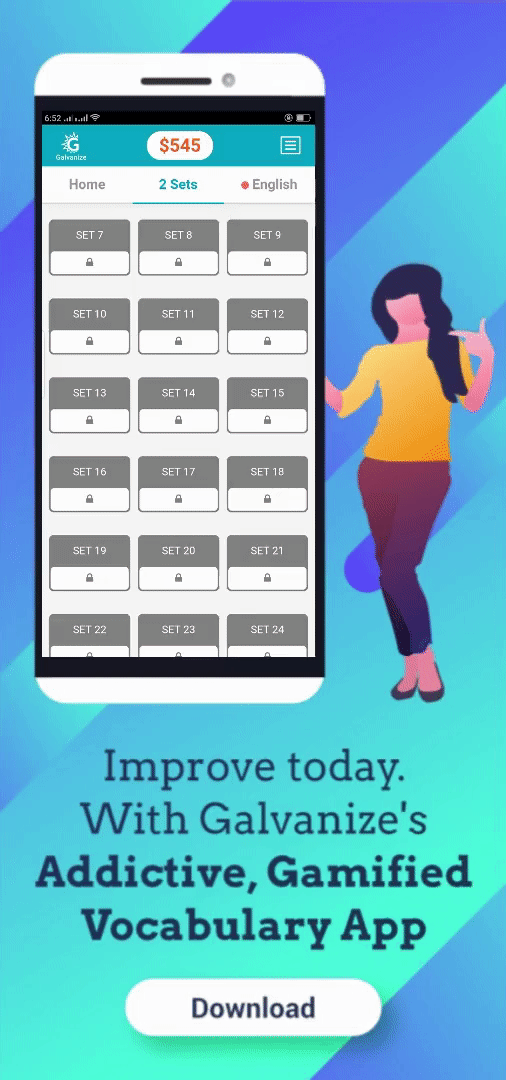
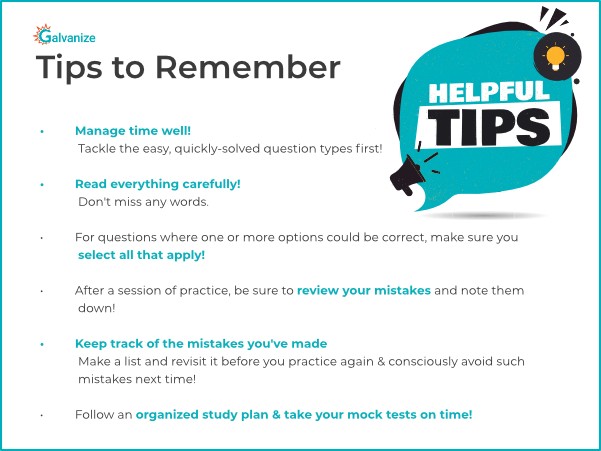

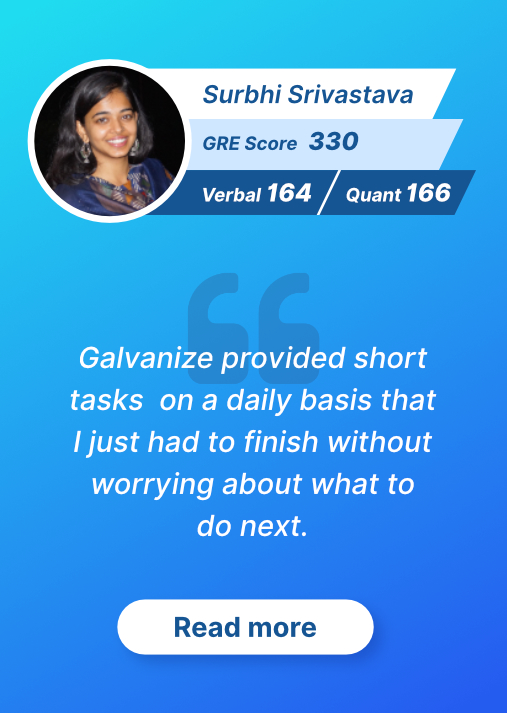
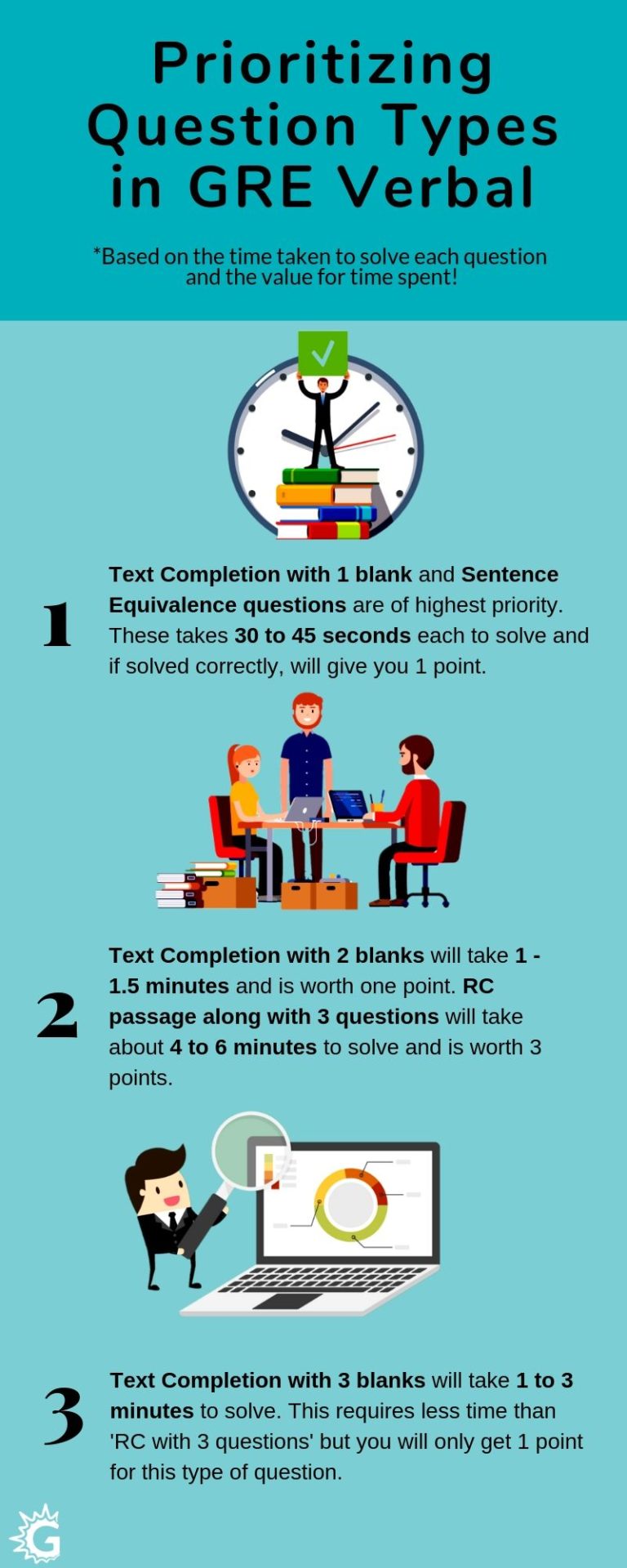
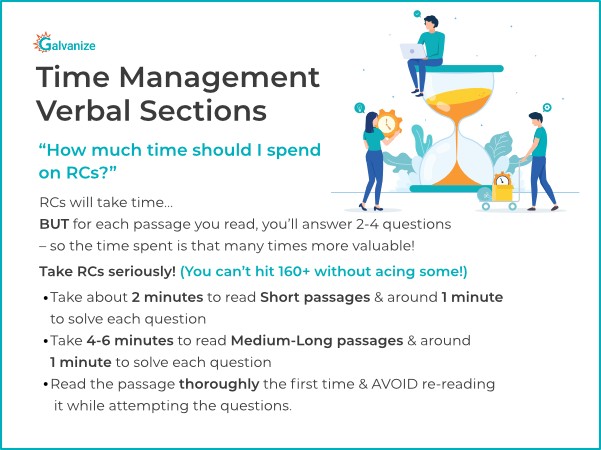
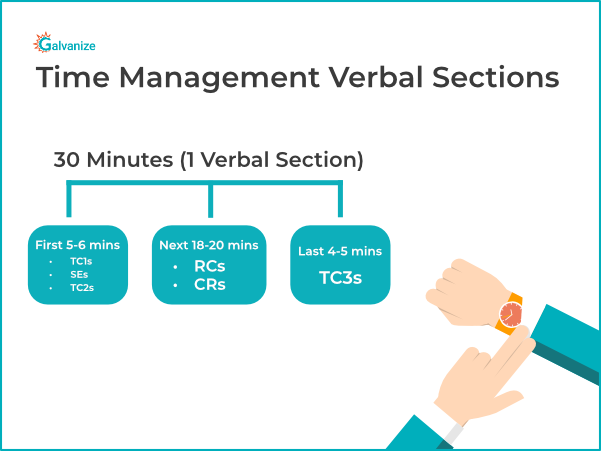
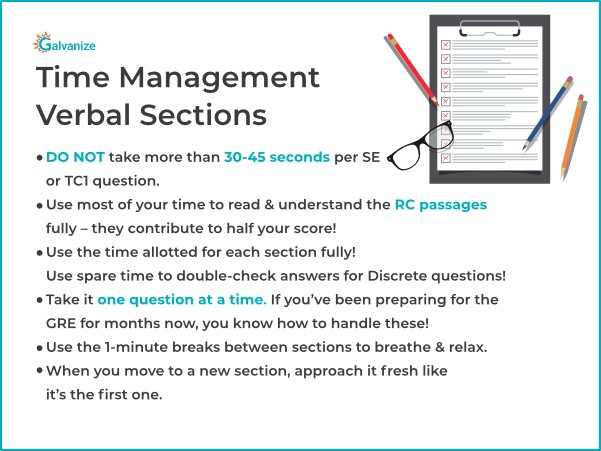
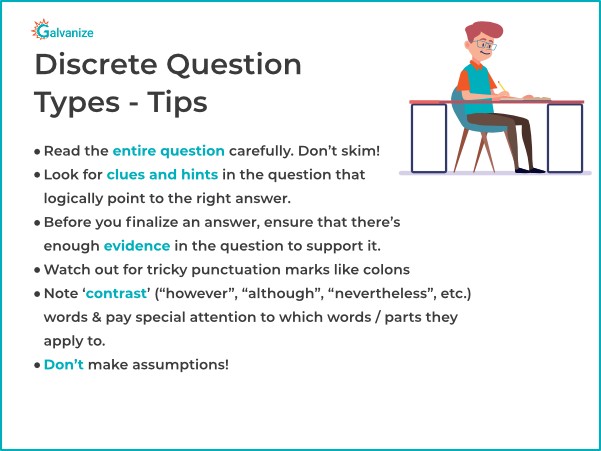
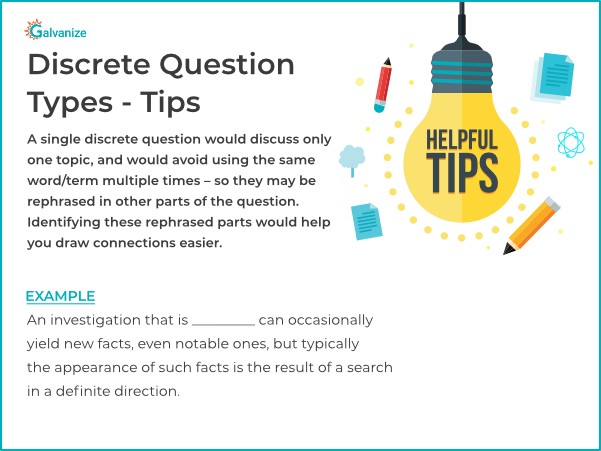
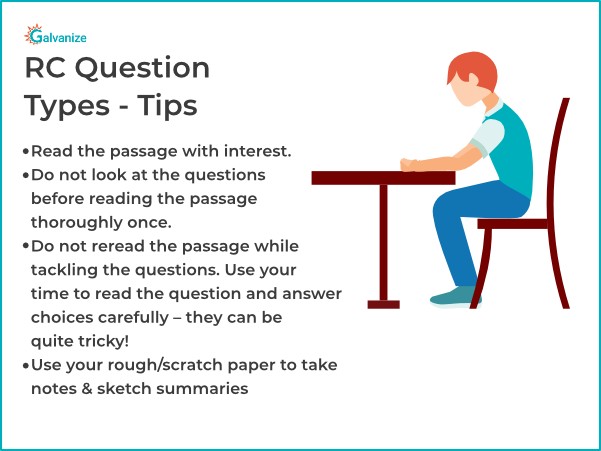
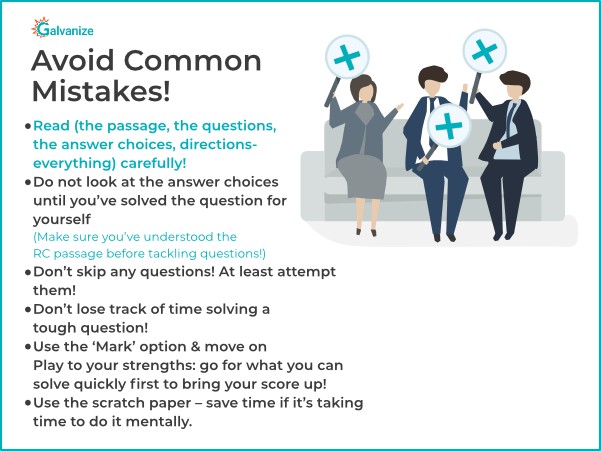
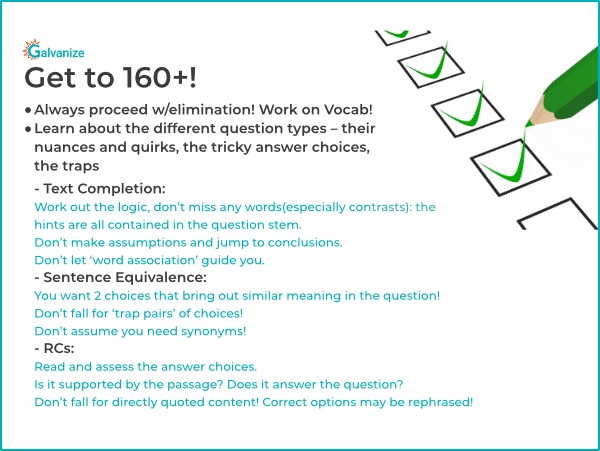







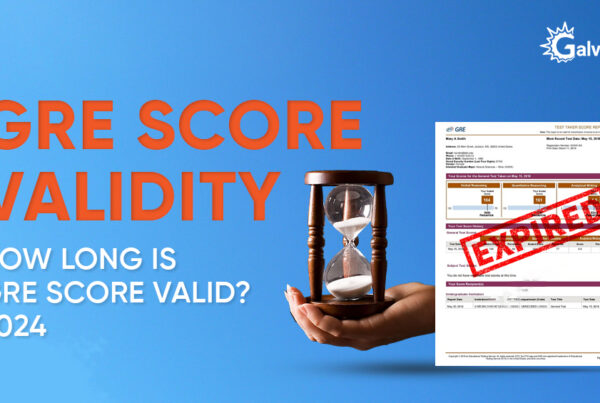


i c
ii f
Option ‘C’ is correct. However, the right option for the second blank is ‘E’ – unsuspecting
This is easy if you know the meaning of ‘subliminal’: something below the threshold of consciousness.
A subliminal message would influence people without them realizing. (Overt ‘= open; covert = hidden; preordained = fated)
perfect guidance
I like it (y)
perfect guideline.I like this very much
EXCELLENT EXPLANATION.thanks
Very effective app
provided good knowledge for this exam .
Wonderful break down of such complexities and explained in the best manner possible.
Great app. Helps too much.
I love this app.
That was awesome and motivating
Very informative and helpful, as well as a lot more motivating, thank you for the help and support that you have provided….
Great explanation, highly motivating.
1. B D
2. E
Great!
nice one.
Best and deep explaination for the GRE Exam
It was cool and informative.
This is really good
Really good website ?
Great
that is really good
Answer.
Question1 is AD
Question 2 is D
Nice article! The kind of value you share in your article is commendable